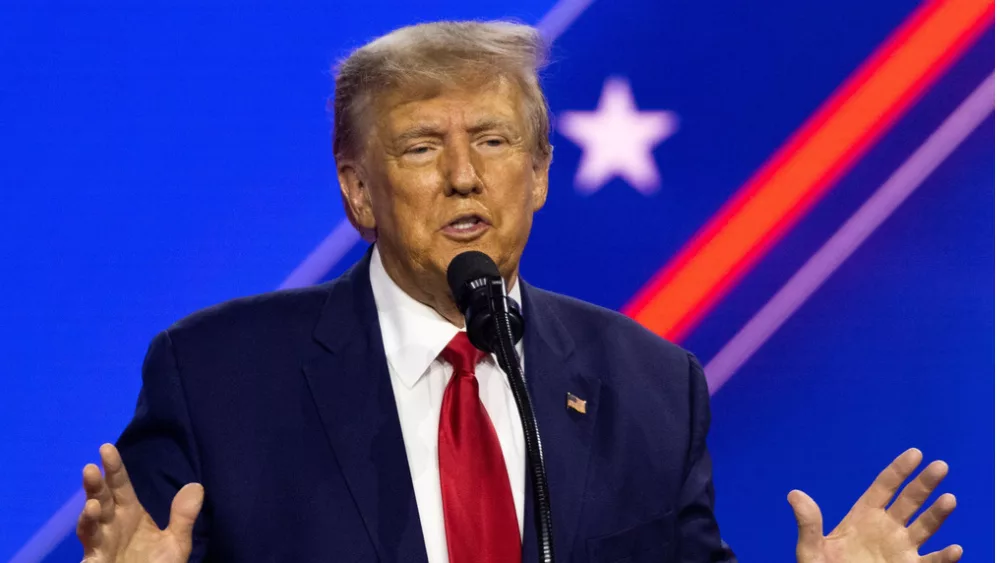
On Wednesday, a judge in Maine told state election officials they would defer a decision and wait for the Supreme Court to rule on Donald Trump’s eligibility for the 2024 presidential ballot. Trump had asked the judge to overturn a prior decision that removed him from the Maine ballot, but the judge declined to do so, until the Supreme Court weighs in. Wednesday’s decision means that Trump’s name is still on the ballot for the Maine GOP primary on March 5, aka Super Tuesday. Ratified after the Civil War, the 14th Amendment says officials who take an oath to uphold the Constitution are banned from future office if they “engaged in insurrection,” but the Constitution doesn’t say how to enforce the ban.
The Supreme Court will hear oral arguments in a similar case from Colorado early next month. Maine and Colorado are so far the only states to disqualify Trump based on his role in the January 6, 2021, Capitol riot. A group of voters filed a challenge in December and Maine Secretary of State Shenna Bellows ruled that Trump was ineligible for office; ballot challenges are first handled by the secretary of state under Maine law, and then can be appealed in state courts. Trump and his GOP allies have slammed Bellows, a Democrat, and have unsuccessfully tried to take her off the case.
Kennebec County Superior Court Judge Michaela Murphy, who issued Wednesday’s ruling, was appointed to the state bench by a Democratic governor in 2007 and then re-appointed in 2015 by then-Gov. Paul LePage, an outspoken Republican and Trump supporter.
Trump and the challengers asked Judge Murphy to pause any final ballot decisions in Maine until a ruling from the Supreme Court. Murphy said it was “rare” to grant such a request, but “under these circumstances, it is appropriate … Because many of the issues presented in this case are likely to be resolved, narrowed, or rendered moot by the Supreme Court’s decision in (the Colorado case), the Court concludes that a remand is necessary … While it is impossible to know what the Supreme Court will decide, hopefully it will at least clarify what role, if any, state decision-makers, including secretaries of state and state judicial officers, play in adjudicating claims of disqualification brought under Section Three of the Fourteenth Amendment.”
Editorial credit: Consolidated News Photos / Shutterstock.com

